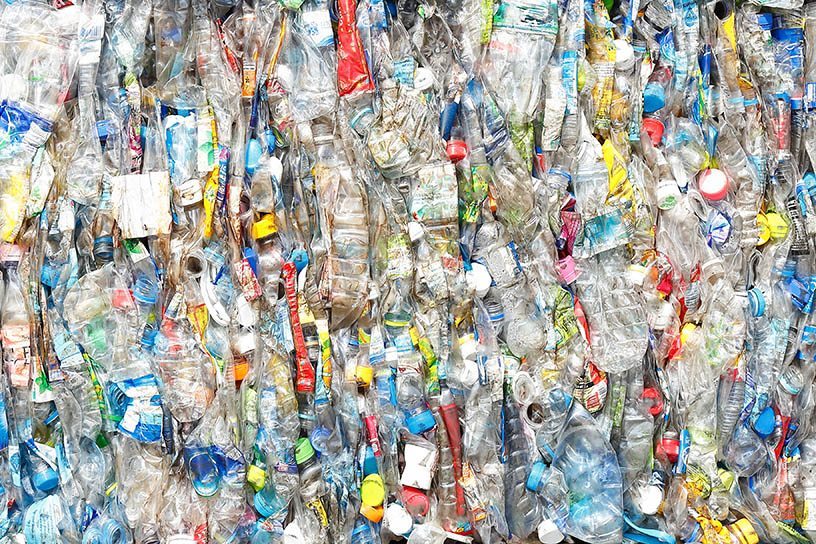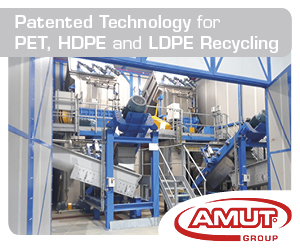
A program officer with Verra explained that the group’s credit-trading system would give companies an avenue to mitigate plastic waste outside the scope of their value chain. | Warut Chinsai/Shutterstock
An initiative backed by several major brands is looking to boost the flow of corporate money to vetted plastics recovery and recycling projects.
The effort is based on a voluntary market-based standard, currently called the Plastic Recovery and Recycling Project Accounting Standard, which will lay out broad rules and requirements for projects around the world to meet.
Projects meeting the standard could generate credits, which companies would then purchase to help fund the effort.
“It’s essentially driving corporate financing through a crediting mechanism to plastic recovery and recycling activities,” said Sneha Balasubramanian, a program officer at Washington, D.C.-based group Verra, which is creating the standard. Verra is a standards development organization that has a focus on climate action and sustainable development.
A similar system, called the Recycled Material Standard, is currently under development from packaging-focused group GreenBlue.
On Feb. 26, Verra plans to release a draft of the plastic recovery and recycling standard for public input. A 60-day public consultation period will follow.
Working to support the development of the Verra standard are some big corporate names, including brand owners Nestlé, Danone and Tetra Pak.
Independent auditing system
For projects looking to obtain funding by selling credits, the Plastic Recovery and Recycling Project Accounting Standard will ensure they demonstrate the money is needed boost plastics recovery or recycling beyond a baseline. It will also ensure they’re incorporating social and environmental safeguards.
Independent auditors will evaluate the projects to ensure they’re meeting requirements of the standard, said Anne Thiel, communications manager for Verra. And then Verra will undertake reviews of those auditors’ validations.
The standard provides a level of stringency that corporations appreciate, Balasubramanian explained. As a standards development organization, Verra already has experience establishing a similar framework for greenhouse gas emissions reduction projects: the Verified Carbon Standard (VCS) Program.
The plastics standard won’t limit projects to a particular part of the world. Balasubramanian said the hope is that it would be employed by projects in plastic waste hotspots in Southeast Asia, but she’s also heard a lot of talk about how it would be useful in certain parts of Africa.
Organizations developing plastic recovery and recycling projects under the standard aren’t required to issue credits. The standard, which assesses, verifies and reports on the impacts of projects, can be used strictly as a guide to evaluate and report project performance, Balasubramanian said.
Credit trading system
Projects meeting the requirements would have to chance to sell credits. Verra’s role is to certify credits generated from projects using Verra’s standards. All certified projects – and their associated credits – will be posted on a registry that’s available to the public.
But the credit trading system, itself, will be independent of Verra.
“Verra has no relationship with the purchase and sale of credits,” according to the group. “The credit market is like any other commodity market, where the project developer and third-party purchaser can negotiate over the price of credits. Credits can be purchased and sold until they are ‘retired,’ which indicates that the credits have been used for offsetting or neutrality claims/purposes.”
The credit-trading system gives companies an avenue to mitigate plastic waste outside the scope of their value chain, Balasubramanian said.
Development of the standard is being led by a 15-member committee, with representation from different sectors in different geographies. After the 60-day public consultation, Verra will evaluate each comment and take larger points back to the committee for consideration, she said.
Later this year, Verra will also post accompanying documents for public consultation. They’ll provide more detailed guidance for different projects in different regions.
The intent is for the first version of the Plastic Recovery and Recycling Project Accounting Standard to go into effect in January 2021.
More stories about industry groups
- APR alliance aligns global packaging design guidance
- APR applies pressure on PET imports, tariffs
- Colorado approval signals path forward for PRO choice



